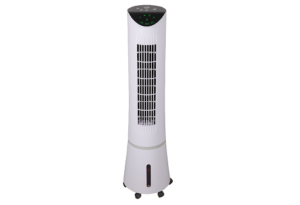
Achieving and maintaining healthy, radiant skin is a common goal for many people. However, with the plethora of skin care products and advice available, it can be overwhelming to know where to start. To help you on your journey to flawless skin, here are ten essential tips that will transform your skin care routine and elevate your beauty regimen.
1. Understand Your Skin Type
Before diving into specific products or treatments, it’s crucial to understand your skin type. Generally, skin types are categorized into five groups: normal, oily, dry, combination, and sensitive. Each type requires different care and products:
- Normal skin: Balanced and not prone to severe issues.
- Oily skin: Prone to excess sebum production, leading to shine and potential acne.
- Dry skin: Lacks moisture, resulting in flakiness and tightness.
- Combination skin: Features both oily and dry areas, typically oily in the T-zone and dry on the cheeks.
- Sensitive skin: Easily irritated and prone to redness and reactions.
Understanding your skin type will help you select the right products and create a more effective skin care routine.
2. Cleanse Gently But Thoroughly
Cleansing is a foundational step in any skin care routine. It removes dirt, oil, and impurities that accumulate on your skin throughout the day. Use a gentle cleanser suitable for your skin type:
- Normal skin: Opt for a gentle, balanced cleanser.
- Oily skin: Use a foaming or gel cleanser to remove excess oil.
- Dry skin: Choose a hydrating cleanser that doesn’t strip away natural oils.
- Combination skin: Consider a mild cleanser that addresses both oily and dry areas.
- Sensitive skin: Select a fragrance-free, hypoallergenic cleanser to avoid irritation.
Avoid harsh cleansers that can strip your skin of its natural oils, leading to dryness and irritation.
3. Exfoliate Regularly
Exfoliation removes dead skin cells, promoting cell turnover and revealing fresher, more radiant skin. However, it’s important to exfoliate properly:
- Frequency: For most skin types, 2-3 times a week is sufficient. Sensitive skin may require less frequent exfoliation.
- Type: Choose between physical exfoliants (scrubs with granules) and chemical exfoliants (AHAs and BHAs). Chemical exfoliants are often gentler and more effective.
Over-exfoliating can damage your skin barrier, so find a balance that works for your skin.
4. Hydrate and Moisturize
Hydration and moisturization are key to maintaining skin health and elasticity. Even oily skin needs hydration. Use a moisturizer that suits your skin type:
- Normal skin: Lightweight, hydrating moisturizer.
- Oily skin: Oil-free, non-comedogenic moisturizer.
- Dry skin: Rich, emollient moisturizer.
- Combination skin: Lightweight, balancing moisturizer.
- Sensitive skin: Gentle, fragrance-free moisturizer.
Incorporate hydrating serums or essences with ingredients like hyaluronic acid to boost moisture levels.
5. Protect with Sunscreen
Sun protection is crucial to prevent premature aging, hyperpigmentation, and skin cancer. Use a broad-spectrum sunscreen with SPF 30 or higher every day, regardless of the weather or your activities. Look for sunscreens that match your skin type:
- Normal and dry skin: Cream-based sunscreens.
- Oily and combination skin: Gel or fluid-based sunscreens.
- Sensitive skin: Mineral sunscreens with zinc oxide or titanium dioxide.
Reapply every two hours when exposed to the sun for extended periods.
6. Incorporate Antioxidants
Antioxidants protect your skin from environmental damage and free radicals, which can accelerate aging. Vitamin C is a popular antioxidant that brightens the skin and boosts collagen production. Other beneficial antioxidants include vitamin E, niacinamide, and green tea extract. Incorporate these into your routine through serums or creams.
7. Tailor Treatments to Your Concerns
Address specific skin concerns with targeted treatments. For acne, consider products with salicylic acid or benzoyl peroxide. For anti-aging, look for retinoids or peptides. For hyperpigmentation, ingredients like niacinamide, kojic acid, and alpha arbutin can be effective. Tailoring your treatments ensures that your routine meets your unique needs.
8. Stay Hydrated and Maintain a Healthy Diet
Your skin reflects your overall health. Drink plenty of water to keep your skin hydrated from within. A balanced diet rich in vitamins, minerals, and healthy fats can improve your skin’s appearance. Foods high in antioxidants, such as fruits, vegetables, and nuts, can also benefit your skin.
9. Get Adequate Sleep
Sleep is essential for skin repair and regeneration. Aim for 7-9 hours of quality sleep each night. Lack of sleep can lead to dark circles, dull skin, and an increased likelihood of breakouts. Establish a bedtime routine that promotes relaxation and ensures you get enough rest.
10. Avoid Harmful Habits
Certain habits can harm your skin. Avoid smoking and limit alcohol consumption, as they can accelerate aging and dehydrate your skin. Manage stress through activities like yoga, meditation, or exercise, as chronic stress can lead to skin issues like acne and eczema.
Conclusion
Perfecting your skin care routine involves understanding your skin type, choosing the right products, and adopting healthy lifestyle habits. By following these ten essential tips, you can achieve and maintain radiant, healthy skin. Remember, consistency is key, and it may take time to see significant results, so be patient and persistent with your routine. Read more…








